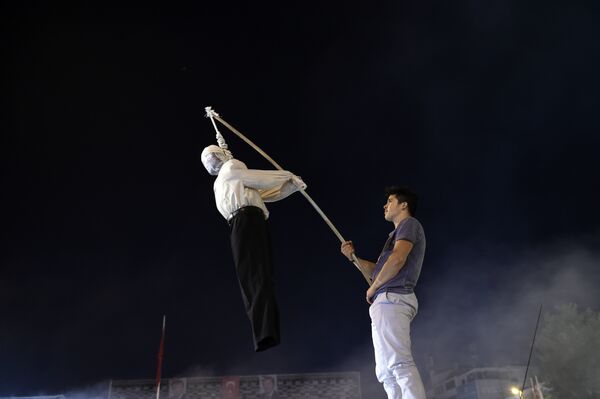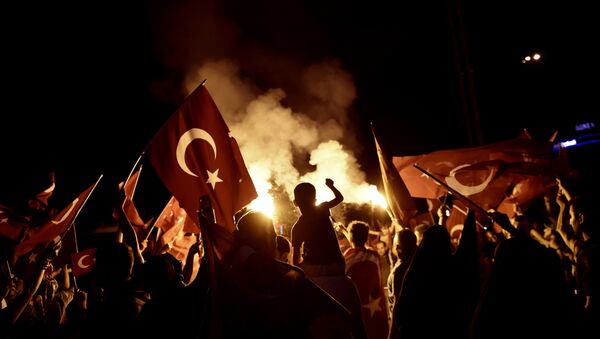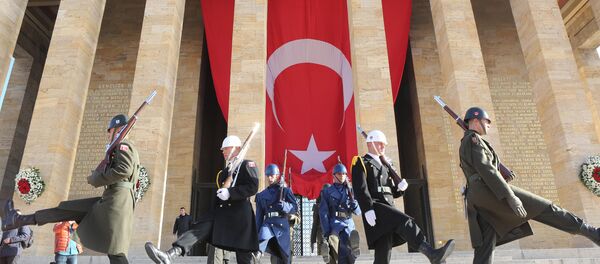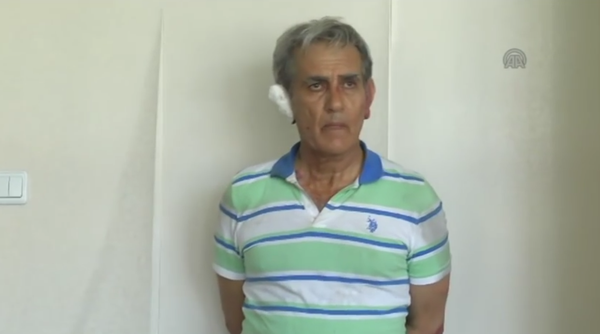The coup was put down on Saturday morning amid brutal fighting in the streets between government supporters and factions of the Turkish army which supported the coup attempt. On Monday Turkish Prime Minister Binali Yildirim said 232 people were killed in the fighting, 145 of them civilians.
The following day, 2,700 judges were dismissed, followed by 9,000 state employees from the police force and government ministries.
More than 15,000 state education employees have been fired, and the higher education council has demanded the resignation of 1,577 university deans.
The Turkish government claims that US-based Muslim cleric Fethullah Gulen was involved in the coup attempt, and wants to purge his supporters; Ankara has also demanded his extradition from the US.
"I'm sorry but this parallel terrorist organization will no longer be an effective pawn for any country," Binali Yildirim, Turkey's prime minister, said.
"We will dig them up by their roots so that no clandestine terrorist organization will have the nerve to betray our blessed people again."
However, Gulen has denied involvement, and Turkey's former Air Force Commander General Akin Ozturk has also reportedly denied being involved.
On July 16 Ozturk was arrested at the Akinci Air Base and reportedly gave a confession, but conflicting reports suggest he has since denied involvement.
On Wednesday, Turkish President Recep Tayyip Erdogan declared a three-month state of emergency, allowing his government to restrict or suspend rights and freedoms and bypass parliament when drafting new laws.
Turkey is one of 47 members of the Council of Europe, and signed the European Convention on Human Rights in 1950. However, on Thursday Ankara suspended the treaty, saying that it was following the example set by France after last year's Paris terror attacks.
The government has also promised to reinstate the death penalty for people accused of treason against the state; capital punishment was legally abolished in 2004, although nobody has been executed in Turkey since 1984.
French Senator Yves Pozzo di Borgo, a representative of the French Parliament at the Council of Europe, told Sputnik France that Turkey has ratified protocols six and 13 of the Convention, which concern the abolition of the death penalty.

"There is no doubt that what we are seeing and hearing about is a kind of ethnic cleansing – it is really in contradiction to the Convention on Human Rights."
Gilbert Roger, Secretary of the French Senate Committee on Foreign Affairs, told Sputnik that the crackdown in Turkey should be condemned by European nations.
"I think that in France, as in Europe, the reaction has been too weak," Roger said.
"Listening to Federica Mogherini saying that if a country brings back the death penalty, it can't be a part of the EU, I would actually say that with this kind of baggage it is impossible to be a part of the EU in any case," he said.





